Prime Minister Pham Minh Chinh said that Vietnam will build and develop into a major economic , trade and investment center in Southeast Asia from now until 2030.
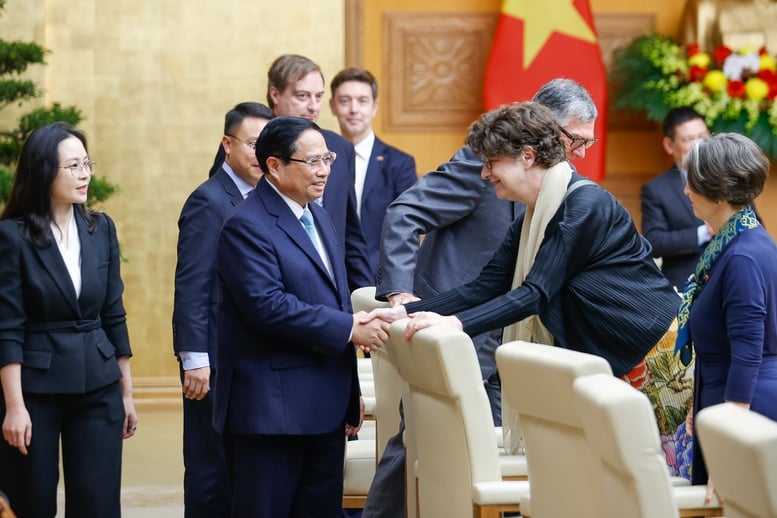
Prime Minister Pham Minh Chinh chairs a discussion with major European corporations and businesses - Photo: VGP/Nhat Bac
Vietnam aims to become a high-income country by 2045
At a discussion with large European corporations and businesses on the afternoon of March 2, Prime Minister Pham Minh Chinh said the world is witnessing rapid, strong, and unpredictable changes with many regional and global issues. Although opening up many opportunities, it also poses many challenges to the development of each country.
In 2025, Vietnam aims to achieve GDP growth of 8% or more and reach double digits in the coming years to achieve two 100-year goals, becoming a developed, high-income country by 2045.
"Vietnam will build and develop into a major economic, trade and investment center in Southeast Asia from now until 2030," said the Prime Minister.
According to the report, Vietnam - EU bilateral trade turnover in 2024 will reach 68 billion USD, an increase of 16% compared to 2023. Not only is the EU the 4th largest trading partner of Vietnam, it is also the 5th largest investor with a total accumulated investment capital of over 30 billion USD.
Mr. Bruno Jaspaert, Chairman of the European Chamber of Commerce in Vietnam (EuroCham), shared that all investors want stability and consistency from policies.
This is also an important factor that helps Vietnam's economic house to be stable and not shaken in any crisis, as he witnessed with his own eyes the houses in the port city of Hai Phong still standing firm during the terrible storm Yagi.
Citing a survey showing that 75% of European businesses recommend choosing Vietnam as an investment destination, Mr. Bruno Jaspaert suggested that Vietnam needs to promote itself more strongly so that the world knows that Vietnam is not only a tourist destination but also an attractive investment and business destination.
Promoting the removal of the "yellow card" for Vietnamese seafood
In response to European businesses’ concerns regarding taxes, Deputy Prime Minister Ho Duc Ho Duc Phoc said that in Vietnam, local authorities are not allowed to impose taxes. As for fees and charges that are regulated by localities, if there are unreasonable amounts, the agencies will work with the localities to make appropriate adjustments.
Regarding tax rates, Vietnam's VAT is 10% compared to 19-22% in many European countries and has continuously reduced VAT from 10% to 8% for many products over the past 5 years. Regarding corporate income tax, G20 countries apply 25-35%, but Vietnam currently applies 20%.
Concluding the discussion, Prime Minister Pham Minh Chinh highly appreciated the investment and business activities of EU enterprises in Vietnam. However, this result is still modest compared to the expectations and wishes of both sides, the potential of the EU and the conditions, potential and strengths of Vietnam.
To contribute to realizing the country's development goals and at the same time improve the quality and effectiveness of bilateral investment cooperation, the head of the Government suggested that EU enterprises expand production and business, further increase high-quality investment, and promote the transfer of advanced technology....
The Prime Minister also asked the EU business community to have a voice in urging the remaining nine member countries to soon ratify the EVIPA Agreement; urging the EC to actively consider removing the IUU "yellow card" for Vietnam's seafood exports...
Source: https://tuoitre.vn/thu-tuong-viet-nam-se-phat-trien-thanh-trung-tam-kinh-te-lon-tai-dong-nam-a-20250302215942541.htm


![[Photo] Readers line up to visit the photo exhibition and receive a special publication commemorating the 135th birthday of President Ho Chi Minh at Nhan Dan Newspaper](https://vphoto.vietnam.vn/thumb/1200x675/vietnam/resource/IMAGE/2025/5/17/85b3197fc6bd43e6a9ee4db15101005b)


![[Photo] Prime Minister Pham Minh Chinh chairs meeting on science and technology development](https://vphoto.vietnam.vn/thumb/1200x675/vietnam/resource/IMAGE/2025/5/17/ae80dd74c384439789b12013c738a045)

![[Photo] More than 17,000 candidates participate in the 2025 SPT Competency Assessment Test of Hanoi National University of Education](https://vphoto.vietnam.vn/thumb/1200x675/vietnam/resource/IMAGE/2025/5/17/e538d9a1636c407cbb211b314e6303fd)
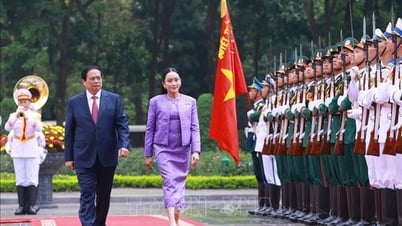








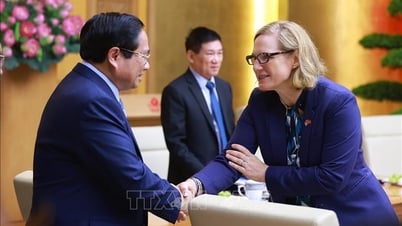




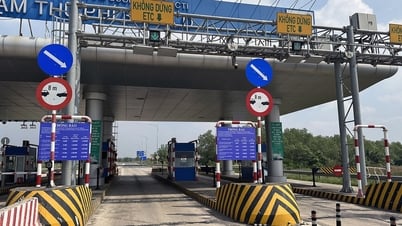

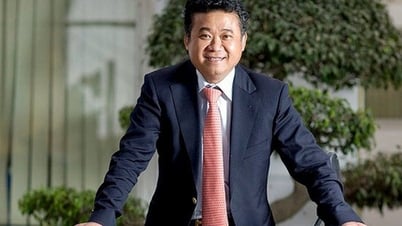










![[Photo] Nearly 3,000 students moved by stories about soldiers](https://vphoto.vietnam.vn/thumb/1200x675/vietnam/resource/IMAGE/2025/5/17/21da57c8241e42438b423eaa37215e0e)





































































Comment (0)